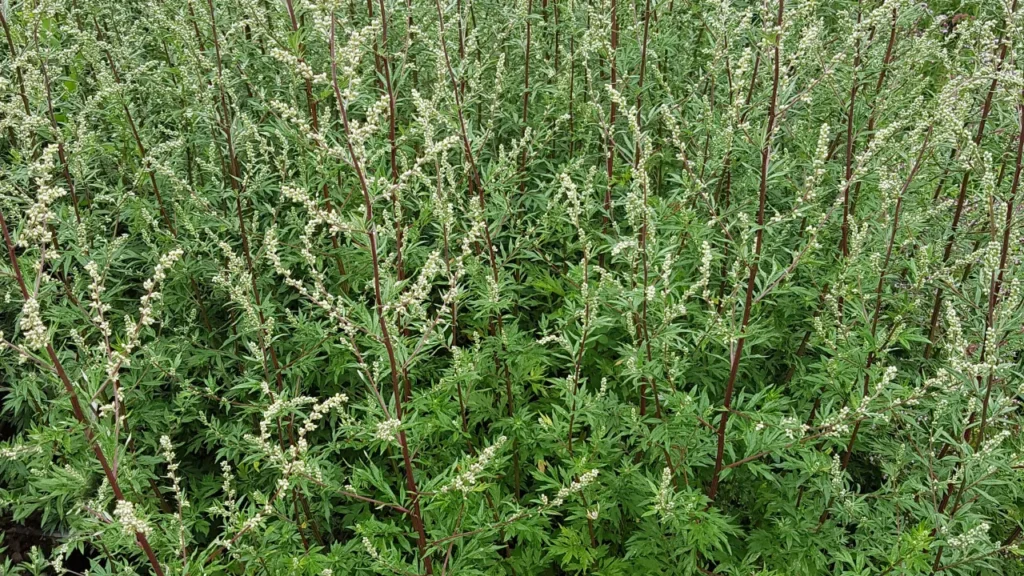In North Africa, the Mediterranean region, and the Middle East, a plant species known as Artemisia Herba-Alba, commonly called white wormwood, has been used for millennia in traditional medicine. This plant has powerful therapeutic qualities ascribed to its high concentration of bioactive chemicals. Artemisia Herba-Alba has attracted interest recently due to its possible health advantages, including its anti-inflammatory, anti-cancer, and antioxidant qualities. This page will give a general review of Artemisia Herba-Alba’s properties, health advantages, recommended dosage, adverse effects, possible drug interactions, appropriate uses, and the plant’s chemistry and the physiological mechanisms underlying its effects on the body and brain.
You May Also Like:
NutriRise Ashwagandha Root Capsules Reviewed: A Leading Herbal Stress Support Product
White Cohosh: Benefits, Dosage, Side Effects, Drug Interactions, and Other Important Information
Artemisia Herba-Alba: Benefits, Dosage, Side Effects, Drug Interactions, And Other Important Information is an original (NootropicsPlanet) article.
Nature of Artemisia Herba-Alba
The Asteraceae family includes the perennial plant Artemisia Herba-Alba. It is typically found in arid and semi-arid environments and is native to North Africa and the Mediterranean. The plant can reach a height of one meter and has finely-haired, gray-green leaves. Artemisia Herba-Alba leaves have a strong scent and a harsh flavor. From May through September, the shrub blooms tiny white or yellow flowers.
Health Benefits of Artemisia Herba-Alba
Since ancient times, traditional medicine has utilized Artemisia Herba-Alba to treat a wide range of conditions, including fever, digestive issues, and skin disorders. A variety of possible health advantages of Artemisia Herba-Alba have also been demonstrated by recent research.
Antioxidant activity is one of Artemisia Herba-Alba’s most well-known advantages. Flavonoids and phenolic chemicals found in abundance in the plant have been shown to scavenge free radicals and lessen oxidative stress in the body, which can aid in warding off chronic illnesses like cancer, cardiovascular disease, and Alzheimer’s.
Additionally, Artemisia Herba-Alba possesses anti-inflammatory qualities. Inflammation is a normal reaction to injury or infection, but persistent inflammation can hasten the onset of many illnesses, including cancer, diabetes, and arthritis. The bioactive ingredients in Artemisia Herba-Alba have been documented in studies to prevent the generation of pro-inflammatory cytokines and lessen inflammatory response in the body.
The anti-cancer effects of Artemisia Herba-Alba are another possible health advantage. According to studies, the plant can stop tumor growth and has cytotoxic effects on cancer cells. It has been demonstrated that the bioactive components of Artemisia Herba-Alba can both cause cancer cells to undergo apoptosis (programmed cell death) and stop them from proliferating.

Chemistry of Artemisia Herba-Alba
Several bioactive substances, such as flavonoids, phenolic compounds, terpenes, and sesquiterpene lactones, can be found in Artemisia Herba-Alba. These ingredients cause the plant’s purported health advantages.
Many plant-based meals contain a class of polyphenolic chemicals called flavonoids. These substances’ anti-inflammatory and antioxidant capabilities have been shown to lower the risk of chronic illnesses like cancer and cardiovascular disease.
Another class of polyphenolic molecules that can be found in a variety of plant-based meals are phenolic compounds. These substances have anti-inflammatory, anti-cancer, and antioxidant effects.
Terpenes are a class of organic substances that are present in a wide variety of plants. Numerous biological processes carried out by these substances, such as antioxidant and anti-inflammatory capabilities, are present.
A class of terpenoids known as sesquiterpene lactones is present in various plants, including Artemisia Herba-Alba. These substances have been demonstrated to have cytotoxic effects on cancer cells and can stop tumor growth.
Physiological Mechanisms of Action
Artemisia Herba-Alba’s bioactive ingredients are what give it its possible health advantages. The antioxidant activity of Artemisia Herba-Alba is one of its primary modes of action. Free radicals are unsteady molecules that have the potential to harm cells and have a role in the emergence of chronic illnesses. Antioxidants like the flavonoids and phenolic substances in Artemisia Herba-Alba can neutralize free radicals and prevent oxidative damage.
Additionally, Artemisia Herba-Alba possesses anti-inflammatory qualities. While chronic inflammation can play a role in the emergence of many diseases, acute inflammation is a normal reaction to injury or infection. The bioactive ingredients of Artemisia Herba-Alba can suppress the synthesis of cytokines that promote inflammation and lessen swelling in the body.
The anti-cancer effects of Artemisia Herba-Alba are another critical mode of action. It has been demonstrated that the plant’s bioactive chemicals can cause cancer cells to undergo apoptosis (programmed cell death) and stop them from proliferating.

Optimal Dosage of Artemisia Herba-Alba
There isn’t a currently accepted dosage since there hasn’t been much research on the ideal dosage for Artemisia Herba-Alba. However, according to the plant’s historical applications, taking 1-2 gm of dried herb daily might be advantageous. It’s crucial to remember that the ideal dosage may change depending on the person’s age, weight, and general health. Before consuming Artemisia Herba-Alba supplements, it is advised that people speak with a healthcare provider.
Side Effects of Artemisia Herba-Alba
When used moderately, Artemisia Herba-Alba is usually regarded as safe. However, if the plant is consumed in excess, it can have several adverse side effects, such as nausea, vomiting, diarrhea, and abdominal pain. Rarely, Artemisia Herba-Alba use for a lengthy period can harm the liver. Before consuming Artemisia Herba-Alba supplements, people with liver illness should speak with a medical expert.

Potential Substance Interactions with Artemisia Herba-Alba Artemisia
Blood thinners and diabetic medicines, among others, may interact with Artemisia Herbal-Alba.
Before consuming Artemisia Herba-Alba supplements, people who are taking drugs for specific diseases should speak to a medical expert.
The possibility of Artemisia Herba-Alba interfering with other herbal supplements should also be noted. For instance, taking Artemisia Herba-Alba, along with other sedative herbs, may make you feel more sleepy and lightheaded.
Best Responsible Uses of Artemisia Herba-Alba
Supplements containing Artemisia Herba-Alba are commonly accessible online and at health food stores. It’s crucial to use these supplements safely, however. Before consuming Artemisia Herba-Alba supplements, people should speak to a doctor, especially if they are taking medication or have underlying health issues.
Additionally, getting Artemisia Herba-Alba supplements from a trusted vendor is crucial. Supplement quality and purity can vary greatly; some supplements may include dangerous contaminants.
Artemisia Herba-Alba:
Conclusion
Artemisia Herba-Alba has a long history of use in traditional medicine for treating ailments such as digestive issues, respiratory conditions, and inflammatory disorders. While some studies suggest potential therapeutic properties, such as antioxidant, anti-inflammatory, and antimicrobial effects, more rigorous research is needed to confirm these findings and determine the plant’s efficacy and safety for various health conditions.
Further scientific research, including clinical trials, is necessary to understand better the potential health benefits, safety profile, and optimal dosage of Artemisia Herba-Alba. As with any herbal remedy, it’s advisable to exercise caution and seek guidance from a healthcare professional before using Artemisia Herba-Alba for medicinal purposes.

References:
- “Antioxidant activity and phenolic composition of different parts of Artemisia Herba-Alba Asso grown in Tunisia.” Retrieved From: https://www.ncbi.nlm.nih.gov/pmc/articles/PMC4066164/
- “Can Artemisia herba-alba Be Useful for Managing COVID-19 and Comorbidities?” Retrieved From:
https://pubmed.ncbi.nlm.nih.gov/35056809/
Important Note: The information contained in this article is for general informational purposes only, and should not be construed as health or medical advice, nor is it intended to diagnose, prevent, treat, or cure any disease or health condition. Before embarking on any diet, fitness regimen, or program of nutritional supplementation, it is advisable to consult your healthcare professional in order to determine its safety and probable efficacy in terms of your individual state of health.
Regarding Nutritional Supplements Or Other Non-Prescription Health Products: If any nutritional supplements or other non-prescription health products are mentioned in the foregoing article, any claims or statements made about them have not been evaluated by the U.S. Food and Drug Administration, and such nutritional supplements or other health products are not intended to diagnose, treat, cure, or prevent any disease.


